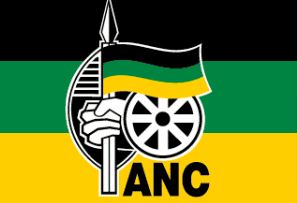CURRENT AFFAIRS UNIT, RADIO KWARA, ILORIN
PROGRAMME: NEWS COMMENTARY
DATE OF BROADCAST: 1/4/90 AT 1810 HOURS
WRITER: LANRE KAWU
Nelson Mandela arrived in Lusaka, Zambia, this week, on his first journey abroad, after 27 years imprisonment. His arrival in the Zambian capital, became an occasion for a national holiday, with thousands of people lining his route into the city. Nelson Mandela’s arrival protocol was also like that normally reserved for Heads of States. At Lusaka to meet the nationalist leader, were the presidents of the Frontline states, a delegation of the Commonwealth, and diplomats representing the United States, and other interested parties, in the South African question.
It was indicative of the esteem which the Frontline States are held, that Mandela reminded his audience of the importance of solidarity which the ANC had received from that quarter, in all the years of the struggle. But the protocol of arrival and subsequent banquet, will not mask the fact that the National Executive Council meeting of the ANC, which opens today, must take far-reaching decisions commensurate with the latest stage of the struggle in South Africa.
On one hand, are the pressures building up from many quarters, including very influential church circles, for the ANC to acknowledge the reform measures of President F.W. de Klerk, by suspending the armed actions of Umkhonto We Sizwe, its military wing. On the other hand, the ANC, with ban on it lifted, must begin to adjust itself to the reality of operating in the open, inside South Africa. A big issue to be resolved, would be just what structures to adopt.
The structures of the United Democratic Front (UDF) and the Mass Democratic Movement (MDM), while being loyal to the ANC and the Freedom Charter, are nevertheless, a loose federation of disparate groupings, which might not be exactly amenable to the disciplined structures of the ANC. The national Executive Council meeting, must also resolve the question of what role Nelson Mandela will have to play, in the leadership of the organisation. This becomes quite important, because of the need to compose a formidable negotiation team that would meet President De Klerk and his Nationalist Party, in face-to-face talks.
The present situation in South Africa has been described as the eve of liberation, by Nelson Mandela. In his opinion, the removal of the remaining obstacles to negotiations by the regime, would represent a decisive breakthrough for the ANC, in the final phases of the war of liberation. In this context, the international community’s response should be one of intensified support for the political platform of the ANC. That means the maintenance of the sanctions against apartheid, and the bolstering of the resource base of the African national Congress, as it makes the transition from the underground, to a national political organisation, dedicated to the building of a democratic, non-racial South Africa.
Transitions by their nature, are never easy. In the context of South Africa, with its history of repressive legislations, all designed to protect the hegemony of the racist minority, the national liberation movement, painfully learnt the lesson of mobilisation, at great costs. Given all the issues at stake, therefore, the latest meeting of the National Executive Council of the ANC, must definitely be one which will open the doors unto the broad avenue of a bright future, for the heroic South African people.


